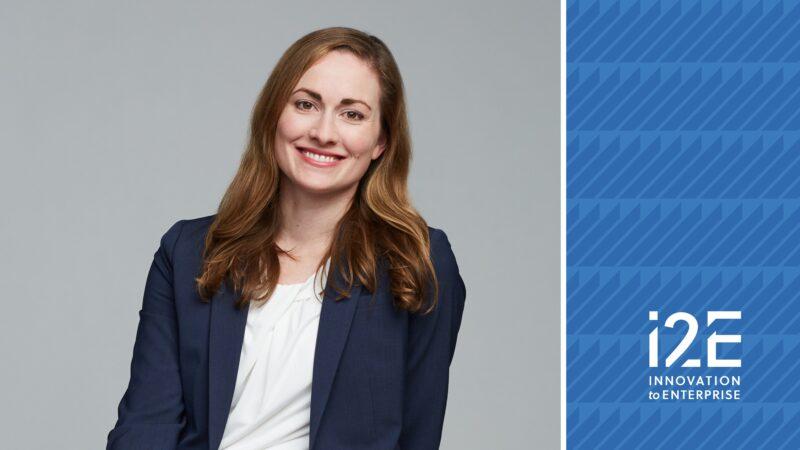Accelerators like i2E’s e3 can have a significant impact on new ventures
By Scott Meacham
When the team from Zen Health Technologies formally introduces their company, they describe a business that uses immersive technologies for personal development training. In a more relaxed setting, CEO Sibyl Badugu and Chief Growth Officer Jacob Mahaffey talk of solutions that use games, artificial intelligence and virtual reality to build connections and skills inside companies.
Their solutions are fun, leading edge, and keep employees engaged — something that absolutely critical in these times of talent wars. Instead of PowerPoint presentations or “talking heads” on Zoom, Zen Health has an entirely new approach. The company uses virtual reality. Employees put on their employer-provided goggles and learn these skills by playing games.
“We are a game-based, skill-building personal development company,” said Badugu.
“Zen Health is developing personal development programs for organizations and all employees in soft skills,” Badugu said, “skills like effective communications, interpersonal relationships, purpose and motivation.”
Zen Room
For those less familiar with the virtual reality and the concept of metaverse, here’s a crash course. A metaverse is a 3D virtual world, a conceptual space where people socialize and play–remember the movie Avatar. The idea has been around for a while. Zen Health’s “metaverse” for skills development will be viewed through virtual reality goggles.
“After the last two years,” Mahaffey said, “employee engagement is low. Employees are leaving jobs. Our training keeps them engaged and interacting with other people in a healthful and challenging way. Companies have wellness rooms and coffee bars. Why not a Zen room? There is a lot of personal development and wellness out there that people don’t come back and continue using. We make it memorable and fun.”
Zen Health Technologies completed i2E’s e3’s mini accelerator earlier this year. Both Mahaffey, who is a serial entrepreneur, and Badugu, who is a product designer and researcher, participated in the program.
“There are so many directions we can go,” Mahaffey said. “Finding product market fit and figuring out the biggest unmet need–the hair-on-fire problem and where do we resonate with the customer was invaluable. The e3 program helped us define that by having us talk to our customers during the program.”
The e3 Impact
At e3, entrepreneurs have to dig in. There are weekly assignments tailored to a particular company’s situation. “We interviewed customers. A lot of entrepreneurs want to build something and then go out and find customers — that’s exactly the backward way to do things,” said Badugu.
“e3 was completely customized,” Badugu said. “I learned what I needed to learn, not general things. We learned what we needed to build our business. e3 helped us change our positioning from being just another voice in the crowd, to be very specific. In that process, we understood our customers’ pain points and what they are willing to pay. We are able to build what they need because we have already talked to them. After talking with customers, we pivoted.”
The state of Oklahoma is at an important inflection point. For a state that a decade ago had no accelerators or incubators, it now seems like they are everywhere. Accelerators, like e3, that focus on individual companies where they are with what they need at their stage of growth can have a significant impact. That’s what e3 graduates like Zen Health Technologies tell us — and we think they are right.
Scott Meacham CEO of i2E Inc., a nonprofit corporation that mentors many of the state’s technology-based startup companies. i2E receives state support from the Oklahoma Center for the Advancement of Science and Technology and is an integral part of Oklahoma’s Innovation Model. Contact Meacham at [email protected].








